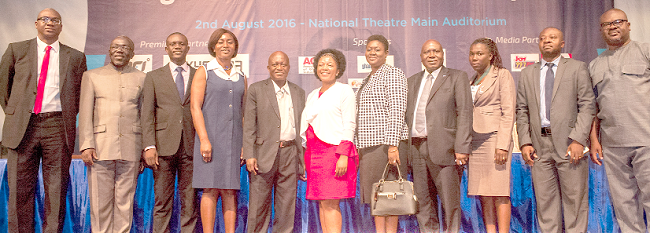
Consumer buying behaviour : Hampering long-term industrialisation
The unbridled appetite of women and the youth in Africa for foreign products is rapidly taking the continent on the wheel of de-industrialisation as their spend value is on the rise.
Advertisement
Following that, between 2014 and 2015, over 90 per cent of clothes and over 85 per cent of shoes that were bought in Africa originated from places such as India, China and Bangladesh, and were largely consumed by women and the youth.
The foregoing remarks were made by an international chartered director, adjunct academic, founder and CEO of PanAvest International and Partners, with over 25 years’ research into supply and value chain in Africa, Prof. Douglas Boateng.
Speaking at the Industrialisation Summit organised by the Chartered Institute of Procurement & Supply (CIPS) Ghana, recently, he said over 78 per cent of goods and services bought by the public sector in Africa came from outside of the continent while over 70 per cent of Africa’s pharmaceutical, vaccine, nutraceutical and cosmeceutical needs were satisfied by manufacturers operating outside of the continent.
“It is these organisational procurement and consumer buying behaviours that are hampering long-term industrialisation and socio-economic development in Ghana and in Africa as a whole,” he said.
Prof. Boateng noted that the de-industrialisation had resulted in increased unemployment, poor living standards, inequality, limits to infrastructural development, loss of skilled human capital to other parts of the world, political, economic and social instability, inflation, dependence on foreign imports and commodity exports, manufacturing downturns, and the collapse of local industries.
Reasons
According to him, the constant search for cheaper alternatives has motivated many African countries to heavily depend on foreign products without considering the potential effect on the continent.
He, however, observed that “organisations and consumers in Ghana need to recognise that the cheapest price does not always mean the best value for money”.
Way forward
Prof. Boateng is, therefore, calling for strategic sourcing practices which will be in line with Ghana’s proposed 2057 Vision, which provides a blueprint for long-term industrialisation and national development.
It will require that organisations and individuals, especially women and the youth, need to move away from a focus on short-term price gains towards long-term benefits.
Strategic sourcing, Prof. Boateng noted, would contribute in the long term to the continent’s industrialisation, local supplier empowerment, job creation, supplier development, and rural, urban, regional and continental economic development.
“Organisations and individuals should be encouraged to source products locally, and buy locally, I mean regionally. Only if attempts to source locally are unsuccessful should people turn to global markets.
“There is the need to move towards promoting ‘Proudly African’ and ‘Made in Africa’ products. That is, instead of focusing purely on individual countries in which products are produced –the ‘Made in Ghana’ slogan is a good example of this –a ‘Made in Africa: produced in Ghana’ concept needs to be supported,” he added.
Vision 2057
The vision 2057 blueprint calls for the end of the state enterprises commission by encouraging regional-wide public partnerships, and harmonised tariffs and strategic export processing zones.
In addition, the blueprint indicates that when it comes to sourcing and buying, organisations and individuals on the continent need to be valu-driven and not cost-driven.
The Chair for CIPS Ghana, Mrs Stella Addo, added that procurement had come a long way, especially in Ghana and for it to take its rightful place, it was time to move it to the next level by driving shareholder and stakeholder value.
“To achieve that, we must understand and speak the language of business and stakeholders, drive the value in the entire value chain, push the boundaries of value and be a solution for societal issues (corruption, environmental, etc), have a procurement reporting to CEOs and at the most senior level in organisations, as well as invest in the best people within the profession. Good procurement is good for the stakeholders and is good for society, she added.
She stated that industrialisation would help Ghana and the rest of the continent to achieve high growth rates, boost employment, diversify economies and reduce exposure to external disparities. “Globally, it is now accepted that procurement, a sub-process of supply chain management, plays an essential role in local and regional wide industrialisation.




